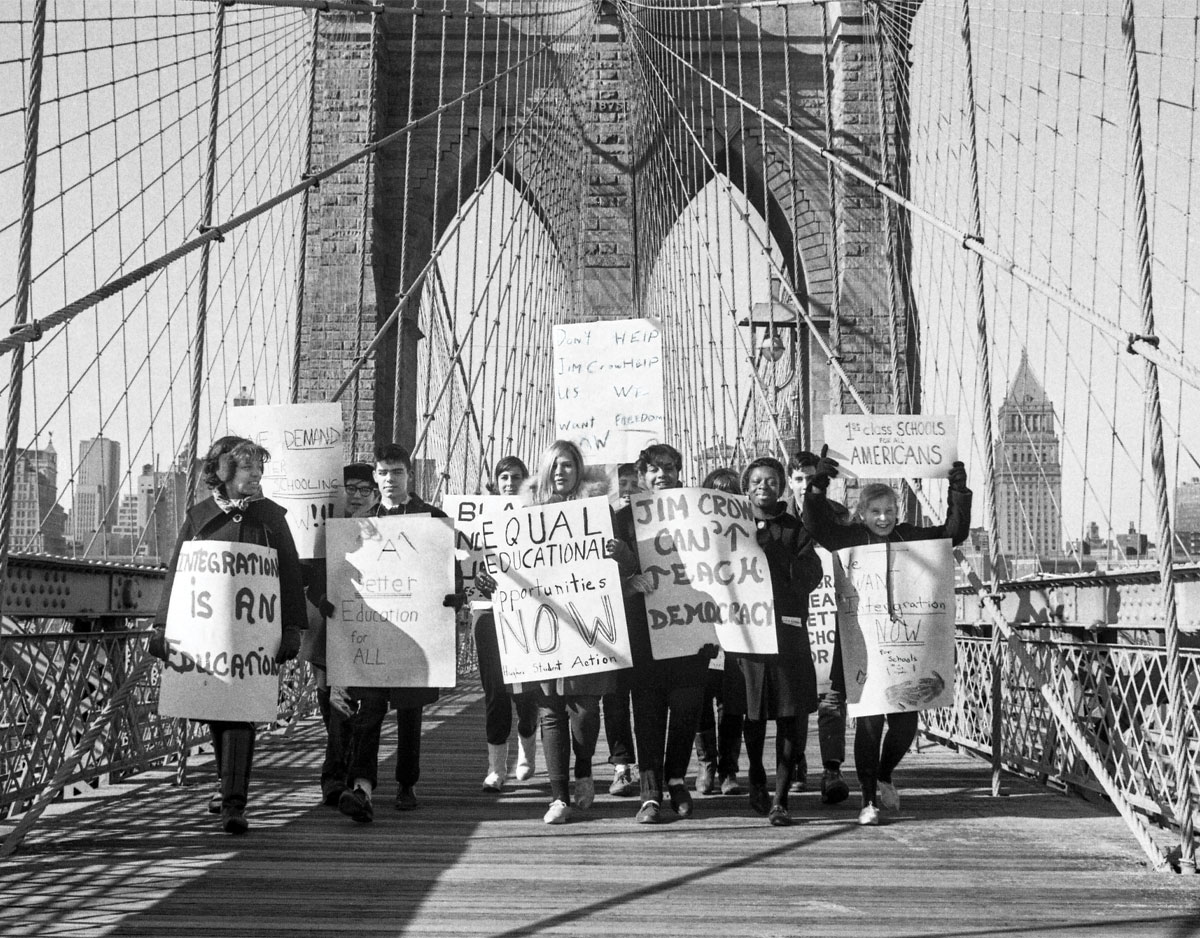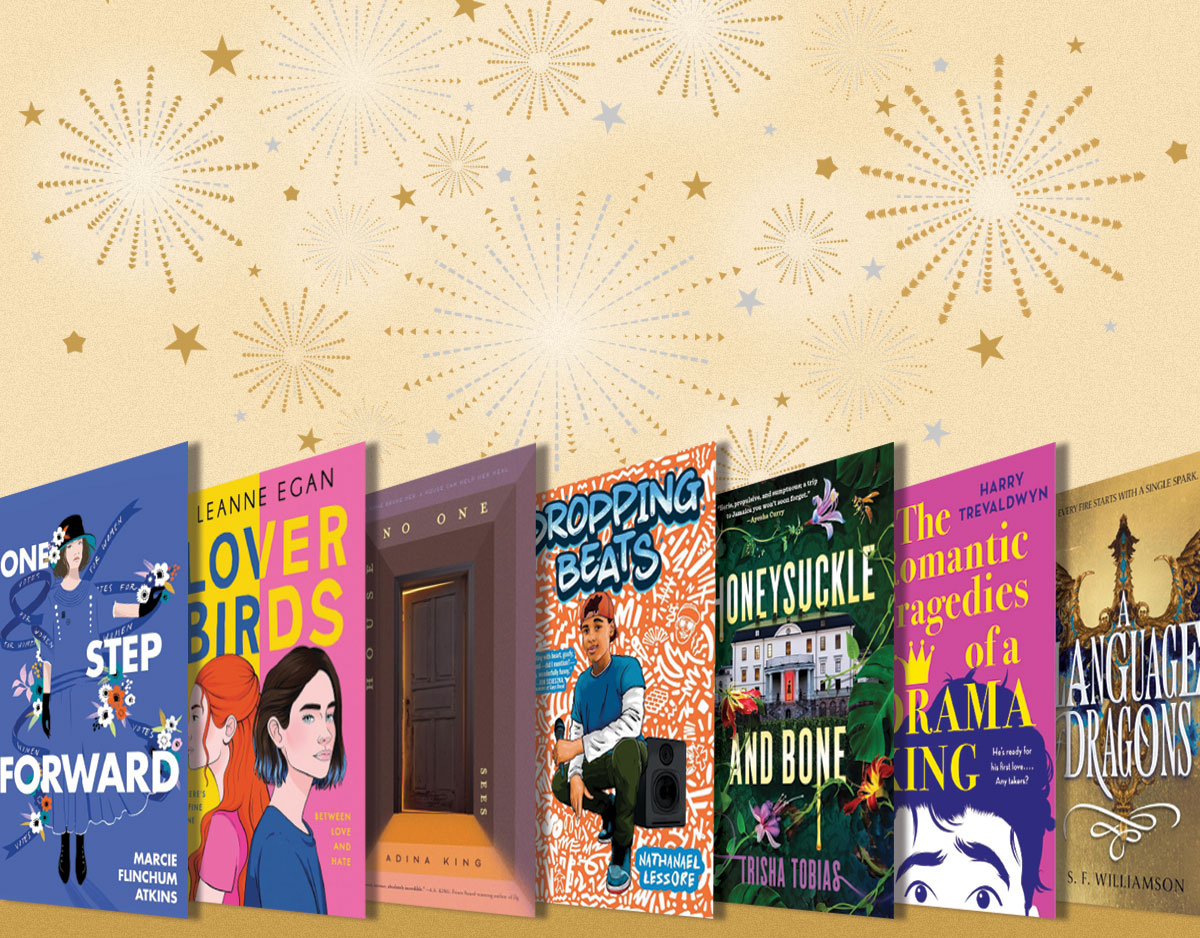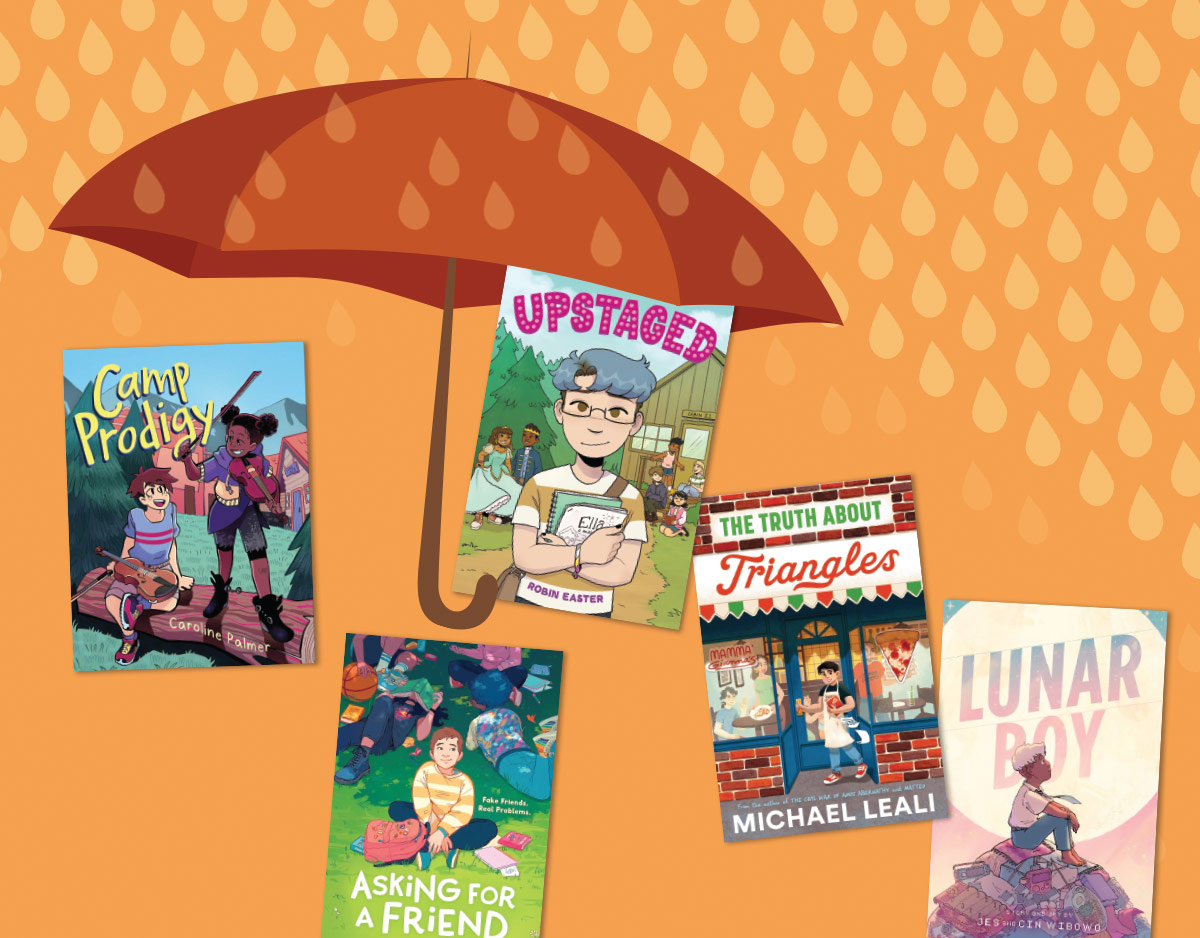Being trans isn’t all “queer joy,” a guest post by Naomi Kanakia
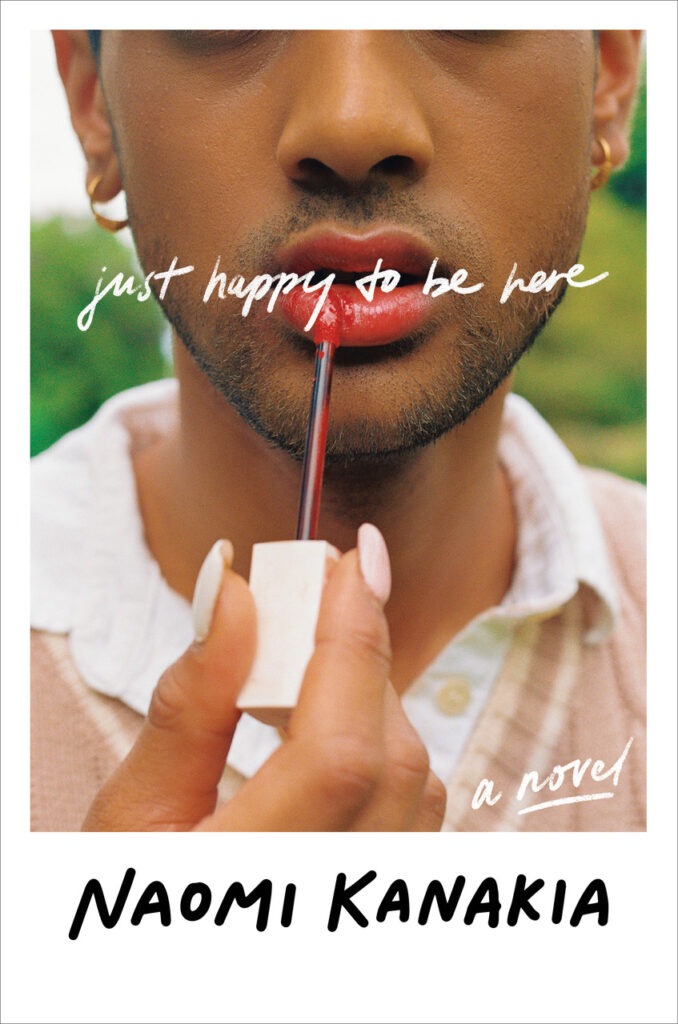
A few years ago I was on a panel with another writer for teens, and they said, “I don’t write anything that doesn’t have some positive social message.” I found this shocking. I was like, who am I to be preaching to kids, telling them how to live? When I wrote, my aim was to portray the world as honestly and vividly as I knew how, and I hoped that teens’ primary response would be aesthetic. They would read my books for the same reason adults read: to be transported to another time and place and to understand the world a little better.
To me, the idea of social responsibility in fiction is the same as lying. The world itself has very little clarity over how to behave. If you write a book that has moral clarity, then you’re either writing an unambitious book or you’re distorting the truth.
But in working on my third young adult novel, Just Happy To Be Here, I started to feel this nagging sense of…social responsibility. This was my first book about a trans girl, and the pitch for the book was that my protagonist, Tara, is the first trans girl at her fancy all-girl’s school in DC, and she doesn’t want to be an activist, she doesn’t want to be pulled into any battles: she just wants to be one of the girls. And the first draft of the book was heavy on interpersonal drama (another girl feels like Tara was given a valuable scholarship just because Tara is trans) and had very little politics.
But, as I revised the book (in 2023), the news for trans teens got worse and worse–first two states banned medical transition for teens, then ten, fifteen, twenty. Youth sports bans, bathroom bans, bans on social transition in schools, even adult care bans followed.
I started writing young adult novels in 2014, and since that time the trend has been away from the “problem novel” or “issues novel” and towards “queer joy”. With the pandemic, that pressure only intensified, and many of the break-out hits of the past four years, both in the adult and children’s markets, have been relentlessly upbeat. It’s not uncommon to read queer YA with no homophobia or transphobia whatsoever, where queerness and genderqueerness are treated as being absolutely ordinary and even unremarkable.
And I’ve followed that trend: the schools in my books tend to contain much less transphobia or homophobia than we’d see in reality. Just Happy To Be Here takes place in single-sex schools much like the one I went to growing up in DC. But the school is an Episcopalian school rather than a Catholic school like the one I went to: a friend asked me, why was that? I said because the Catholic church is hostile to trans kids, and I cannot imagine that any Catholic girl’s school, at least any with which I am familiar, would admit a trans girl.
That is the world we still live in. It’s not a world of acceptance. Moreover, when I read about the very-accepting parents in these books, I don’t see much reality: the truth is, parents tend to be very attached to a child’s assigned-at-birth gender, and there is almost always a period of conflict when a child expresses discomfort with their assigned-at-birth gender, particularly if this discomfort only gets expressed when they’re a teenager.
Moreover, it’s been well-documented that almost every gay rights victory leads to an increase in LGBT teen homelessness. And why is that? It’s because teens’ perception of what is normal tends to change much faster than their parents’ perceptions. After gay marriage was legalized, thousands of teens came out to their parents. Many of those parents responded by kicking them out of the house.
I do not want some teenager to read a book of mine, think life is rosy for trans teens, come out to their parents, and get kicked out of their house. That is not the change I want in the world. If I thought even one teenager would be harmed by my work, I wouldn’t write it.
As the year got worse and worse, I felt some responsibility to try and push back against this “queer joy” narrative. The truth is, the world is very hard for trans kids. Not all of that is due to overt transphobia. Just figuring out if you’re trans is hard. Accessing medical care is hard. The dysphoria you feel while transitioning can be very hard. Transitioning can make romantic prospects much more difficult. I know many trans people who have lost jobs, lost partners, lost their homes, lost their health, lost their safety as a result of transitioning: those losses are almost more common than not, particularly for trans women.
We, as trans people, benefit so much from transitioning, but the world doesn’t necessarily understand or accept that. And the world doesn’t make it easy. I cannot count the number of times that I, as an adult, have cried because of the frustrations of accessing medical care, or because I felt ridiculous or unsafe. I have wished many times that I wasn’t trans; but I have never wished that I hadn’t transitioned. Given the fact that I am indeed trans, the only way I could be happy was to transition.
To me, in this book, having social responsibility meant writing about both those feelings: hating being trans, and loving the fact that I can transition. The story I set out to tell (about a trans girl in a mostly-accepting school, figuring out some interpersonal stuff only vaguely related to being trans) was a true story! I have no doubt that many trans girls have that experience! But there is another equally-true side to being trans. As my protagonist, Tara, remarks to herself at one point, the weird thing about going to trans support groups is that half the girls are struggling with really prosaic stuff (“I feel embarrassed when I take girl’s clothes into the dressing room at Target”) and half the girls are dealing with the most harrowing experiences imaginable (“My parents kicked me out of the house, and I’m staying on a friend’s couch, and I don’t know how to get estrogen”). And oftentimes people are dealing with both! The girl who’s staying on her friend’s couch also feels pretty embarrassed at Target. Transitioning is a lot more complicated than facile narratives about “queer joy” or how #ItGetsBetter.
Yes there is joy, and it does get better, but you also have to be very smart. For many trans kids, we functionally live in a police state, where the government has deputized teachers, therapists, and doctors to spy on you. Where, even if your parents are accepting, child protective services can take you away from them if you even socially, much less medically, transition. Where prominent lawmakers are publicly advocating the idea that the kindest thing you can do for a trans child is to force them to conform to their assigned-at-birth gender.
And when you live in a police state, you cannot just expect things to work out. You need to be canny and enterprising. You need to learn how to read people. You need to learn to figure out who to trust. It isn’t fair, of course, but it is necessary that trans kids simply be that much smarter than their cisgendered friends.
This was something I felt I needed to convey in my book, even though it probably made the book much less enticing both to the publishing industry and to its target market (which, like the market for most queer YA novels, is composed primarily of teens and young adults who aren’t intending to medically transition).
It was a fine balancing act to stay true to that reality while also staying true to my original vision. I didn’t want to write a story about a trans kid in a police state. I wanted to write about a trans kid who falls in love and really likes her school and just wants to be one of the girls. In the end, I suppose I wrote about a trans kid who lives in a police state and mostly just wants to be normal and fall in love and hang out with her friends. I don’t know if the result will be enjoyable or satisfying for readers looking for “queer joy,” but I do think it is socially irresponsible to release a book about trans teens in 2024 and not show something of the reality of what trans life has become.
Meet the author
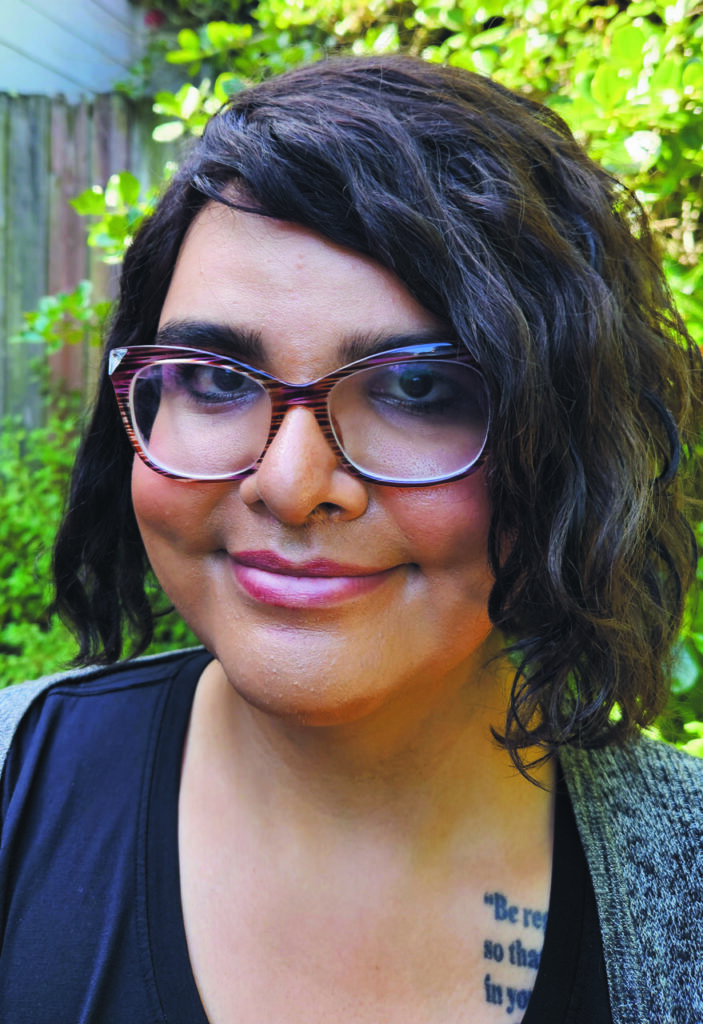
Naomi Kanakia has written three young adult novels. She also has some forthcoming books for adults, and her essays, short stories, and poetry have appeared all over the place. She grew up in Washington, DC, and she currently lives in San Francisco with her wife and daughter.
ADVERTISEMENT
ADVERTISEMENT
Connect with Naomi Kanakia!
Website: Woman of Letters
Instagram: @rhkanakia
About Just Happy to be Here
In this YA standalone perfect for fans of Tobly McSmith and Meredith Russo, the first out trans girl at an all-girls school must choose between keeping her head down or blazing a trail.
Tara just wants to be treated like any other girl at Ainsley Academy.
That is, judged on her merits—not on her transness. But there’s no road map for being the first trans girl at an all-girls school. And when she tries to join the Sibyls, an old-fashioned Ainsley sisterhood complete with code names and special privileges, she’s thrust into the center of a larger argument about what girlhood means and whether the club should exist at all.
Being the figurehead of a movement isn’t something Tara’s interested in. She’d rather read old speeches and hang out with the Sibyls who are on her side—especially Felicity, a new friend she thinks could turn into something more. Then the club’s sponsor, a famous alumna, attacks her in the media and turns the selection process into a spectacle.
Tara’s always found comfort in the power of other peoples’ words. But when it comes time to fight for herself, will she be able to find her own voice?
ISBN-13: 9780063216570
Publisher: HarperCollins Publishers
Publication date: 01/02/2024
Age Range: 14 – 17 Years
Filed under: Guest Post
About Amanda MacGregor
Amanda MacGregor works in an elementary library, loves dogs, and can be found on BlueSky at @amandamacgregor.bsky.social.
ADVERTISEMENT
ADVERTISEMENT
SLJ Blog Network
Should I make it holographic? Let’s make it holographic: a JUST ONE WAVE preorder gift for you
This Whole Interview Is a Mistaco: And I Get to Talk to Eliza Kinkz in the Course of It!
Halfway There: A Graphic Memoir of Self Discovery | Review
Fifteen early Mock Newbery 2026 Contenders
When Book Bans are a Form of Discrimination, What is the Path to Justice?
ADVERTISEMENT




